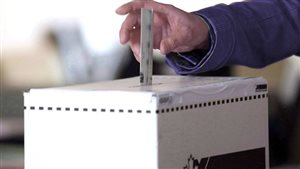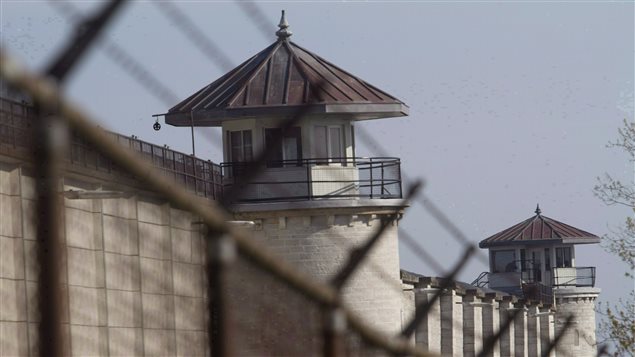Prisons will be the setting for people exercising their right to vote on October 9th, 2015. These will be advanced polls, conducted much the same way Canadian Forces vote when on missions in foreign countries, or eligible expat Canadians may vote from abroad.
More that 22,000 federal and provincial inmates are eligible, and according to John Enright, a spokesperson for Elections Canada, the organization that oversees federal elections, they will soon be contacting liason officers in the jails and prisons, to begin setting up the voting process.
ListenEach inmate votes for a candidate in their former home riding, not the riding in which the prison is located. In the last federal election in 2011, voter turnout was 54 per cent in penitentiaries, not much below the 61 per cent of the general population who exercised their right, and voted.
Richard Sauve, a former member of Satan’s Choice biker gang, challenged the law that prevented him from voting

“They are part of the polity and they want to be part of the democratic process,” Catherine Latimer, executive director of The John Howard Society of Canada, told CBC News. And because prisoners have time to read and watch television news, they are just as informed – if not even more so – than Canadian voters on the outside, she said.
Formerly prisoners did not have the right to vote. It was in 2002 that a Supreme Court of Canada judgement granted federal prisoners the right to vote on constitutional grounds, in a 5 – 4 ruling that voting is a fundamental right in a democracy.
Richard Sauve, a former member of Satan’s Choice biker gang, challenged the law that prevented him from voting, while he was serving a life sentence for first degree murder.
Since this time all Canadians, except the Chief Electoral Officer, are eligible to vote. Parliament, however, has not amended Canada’s Elections Act to reflect the change, so the prisoner voting ban still exists.
Those running for office are allowed to campaign in prisons, though they’re subject to the same rules and regulations that any visitor would be, including security checks.
In Canada now, there are 14,044 people incarcerated in federal prisons, including 35 with dual citizenship, and 8,101 under Correctional Service Canada community supervision. There are approximately 1200 inmates in provincial jails.








For reasons beyond our control, and for an undetermined period of time, our comment section is now closed. However, our social networks remain open to your contributions.